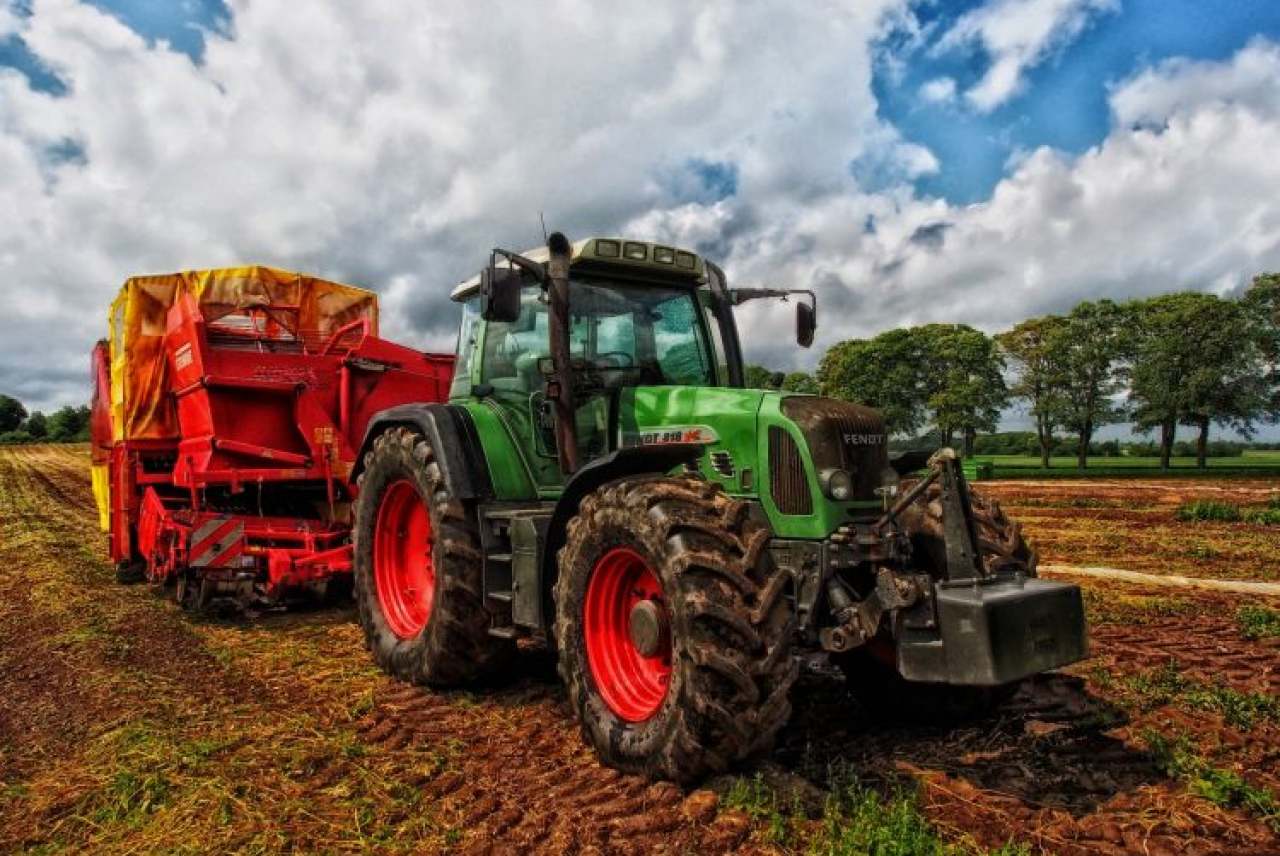The primary goal of our research was to understand the NFU and how this organisation has changed and why. This has not always been easy since much of what the NFU stands for appears baffling on the surface. Why would farmers, for example, want to oppose soil-erosion standards when this would appear to undermine their long-term future? [4]
The mists begin to clear with the realisation that its name is where the seeds of many misunderstandings first begin to germinate. This is because, as we go on to argue, the National Farmers' Union is not really national, not really farmers and not really a union. It is easier to understand it if we think of it, perhaps, as the 'English, agribusiness lobby-group'.
Not really National
Of the three words in its title, this is perhaps the easiest to challenge. In Scotland, there is the independent group NFU Scotland and in Northern Ireland there is the Ulster Farmers' Union. Although the NFU does have a NFU Cymru region, there is also a parallel, and independent, Farmers' Union of Wales.
Anecdotally, some of the biggest farms outside England might be members of both the NFU and the regional alternative but, by and large, they keep to their own patches. In the sense that we in the UK think of ourselves as being from Great Britain or the United Kingdom, the NFU is not really national. If we were to describe it more accurately we might be inclined to replace 'National' with 'English'.
Not really farmers
Challenging the use of the word 'farmers' in the NFU's name is a much more complex task, and one to which much of this report is directed. There are two main senses in which thinking of the NFU as 'Farmers' is confusing.
Not just farmers
In the interviews with farmers, which we conducted for our report, it is pretty clear that some of them feel that the main UK supermarkets are in some way members, or part of, or partnering with the NFU in a significant way. How else is it possible to make sense of the fact that, for example, in the early years of the campaigns for a supermarket ombudsman to protect suppliers from unfair pricing practices, the NFU was opposed to its establishment?[5]
We also looked in detail at the Red Tractor Scheme, a project which is jointly owned by the NFU, the supermarkets' own trade association the British Retail Consortium, and the representatives of other commercial entities.
The second concern we heard in our interviews is that pesticide manufacturers, such as Syngenta, are also in some way members, or part of, or partnering with the NFU.[6] In the same way, for example, how else can we explain the NFU's vociferous opposition to restrictions on bee-harming neonicotinoid pesticides – despite the vital role that bees have in pollinating a whole range of crops that many farmers rely on commercially?[7] Or how can we explain the NFU's support for GM foods despite continued majority opposition from ordinary consumers?[8]
In our report, we look in more detail at how the NFU is formally structured and it is clear that there are a range of different types of membership including Associate Members and Additional Members. The NFU chooses not to disclose who its corporate members are so it is not possible to be certain how formal these relationships with other food-related businesses are. A decision to be more transparent in this regard might be one way of addressing people's concerns in this area
Because of the idea that the NFU is lobbying on behalf of ‘not just farmers', if we were to describe it more accurately we might replace the word 'farmers' with 'agribusiness'.
Agribusiness has been previously defined by the Food and Agriculture Organisation of the UN as "the collective business activities that are performed from farm to fork".[9] These would include agrochemicals, breeding, crop production (farming and contract farming), distribution, farm machinery, processing, and seed supply, as well as marketing and retail sales.
Not all farmers
A theme that runs throughout our report, and indeed an allegation that has long been laid at the door of the NFU, is that it doesn't really represent the interests of small farmers.
Indeed, many of its actions actually appear to work against the interests of smaller farmers. For example, its recent focus on promoting mega-dairies and giant pig farms could create new, and even lower-priced, competitors for small-scale milk and pork producers.[10]
In addition, we looked at how its refusal to accept a cap on EU farm subsidies has contributed to a further concentration of land ownership, with bigger farmers, awash with cash they don't really need, outbidding the smaller farms nearby when land comes on the market.[11]
This approach, and its impact on smaller farmers since the 1970s, has led to the creation of a number of breakaway groups such as the Small Farms Association and the Family Farmers Association.
This is why we assert that the union is not really for 'all farmers'. Of course, the NFU does retain some small farmer members. Sometimes this is because of practical benefits like insurance, and sometimes it appears to be for less tangible reasons like social opportunities and social pressures. But from the evidence in this report it does appear that the majority of the NFU's lobbying supports the interests of the very largest farming businesses in the country, and particularly those which are focused on profit maximisation at all costs.
Not really a union
In the UK, the word 'union' is most commonly used to describe an association of workers created to help represent their collective interests in negotiations with their employer. The NFU, as a trade association or technically an employers' association is, in fact, the diametric opposite of a union of workers.
Thinking of it as a union can also be confusing because, in another theme running through our report, there is a grumble from smaller farmers that the NFU is not a democratic union (in the sense of one member one vote). Like a company with bigger and smaller shareholders, both formal and informal influence in the NFU appears to be related to farm size.[12]
In the modern world, we would call this kind of entity a lobby group, a type of entity less favourably viewed in the public mind. Looking at the NFU as a lobby group is also useful because problems created by the power of corporate lobbying generally have become a field of study in their own right in the last 20 years or so.
Corporate lobby groups
"Public confidence in how policies are being formulated, and in whose interest, has been negatively affected by repeated incidences of opaque lobbying practices." [13] Transparency International.
Especially since the rise of economic globalisation in the 1980s, there has been growing concern about the excessive power and influence that corporate lobby groups appear to have in modern democratic societies.[14] Much of this is simply down to resources. Successful for-profit corporations simply have more money than anyone else to hire lawyers, employ lobbyists, and fund think tanks to track and influence the direction and detail of public policy.
Academics who study politics are adopting a new language of ‘corporate capture' or 'regulatory capture' of government departments, or even whole administrations, by private interests.[15] A particular focus for campaigners in recent years, for example, has been the influence of coal- and oil-industry lobbyists around the ongoing international climate negotiations.





